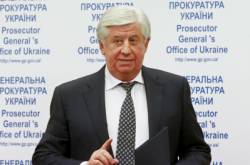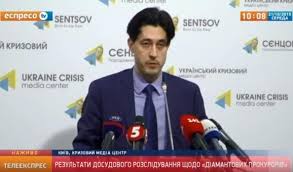Ukraine’s Government Bans Criticism “To Restore Public Trust”

Ukraine’s Cabinet of Ministers has come up with a solution for fighting all the ills like corruption and lack of reform that are seriously damaging the country’s reputation. They have issued a resolution which demands that civil servants, and even the heads of state enterprises refrain from publicly criticizing the authorities and public officials. The “Rules of Ethical Behaviour of Public Officials” are dated Feb 11, 2016, but the resolution approving them appeared on March 1.
The introductory note states that “in order to restore public trust in the work of state bodies and their officials, the Government has decided to introduce standards of ethical behaviour for civil servants”. It asserts that this takes into account “the progressive and successful experience” of EU member states, and says that it is based on a model for guaranteeing maximum transparency of the work of state bodies adopted in Poland.
It is impossible to understand how muffling criticism from civil servants and the heads of state enterprises is supposed to enhance transparency. This is no mere advice on good behaviour since the document ends by stating that for breaches of the Rules, a person will face disciplinary measures “in accordance with the law”.
Item 2 states that civil servants must be guided by principles of, among other things, loyalty. This envisages “refraining from any demonstrations of public criticism of the work of state bodies and its officials”.
Perhaps this is a norm accepted in other countries, but it comes at a time when many Ukrainians are becoming increasingly impatient at the lack of real reform and failure to combat corruption, and the information which could now be muffled is often of real public importance.

 Viktor Shokin (left) and Vitaly Kasko
Viktor Shokin (left) and Vitaly Kasko
’Disloyal’ behaviour would, for example, almost certainly be deemed to include the public statements made by the then Deputy Prosecutor General Vitaly Kasko about effective sabotage of reform by Prosecutor General Viktor Shokin. The latter’s actions undermined an EU-supported system for reforming the prosecutor’s office and bringing in new people. Kasko revealed that the Prosecutor General had not appointed any external candidate that had not previously worked in the prosecutor’s office, with 84% of the ‘new appointments’ in fact reshuffling of people who had previously held managerial posts. Most had held them during the Viktor Yanukovych presidency when all law enforcement bodies saw serious degradation. Kasko later spoke of having been placed under heavy pressure by Shokin to resign.
These ethical rules have been adopted by a Prime Minister and Cabinet of Ministers that have themselves come under heavy criticism. Serious concerns were raised last year by anti-corruption watchdogs over alleged rigging by Prime Minister Arseny Yatsenyuk and some other members of the government of the makeup of the selection commission for members of the National Anti-Corruption Agency.
This government has now brought in ‘ethical rules’ which essentially leave no alternative but for people of integrity like Kasko and Aivaras Abromavicius, until recently Minister of Economic Development and Trade to resign or shut up. In their case, their departure made headlines. The muffling of lower level civil servants or heads of state enterprises would quite likely go unnoticed.
There are other ethical rules that should preclude silence where the country’s interests are at stake. Try to prove this, however. Instead, such items as 5.4 which prohibit activities even outside ones work “that could harm the interests of the state service or adversely affect the reputation of a civil servant” could be used to prevent a person legitimately exercising their freedom of speech.
It is undoubtedly true that information exposing corruption by the country’s leaders, sabotage of reform, etc. is damaging to Ukraine’s reputation. The corruption or sabotage, however, need to be addressed head on and stopped. Instead, Prime Minister Yatsenyuk and his ministers have endorsed rules that would try to prevent those employed to serve the public from public criticism without stipulating any exceptions for when such actions are genuinely seen as in the public interest. And this, they claim, is aimed at winning back public confidence.





